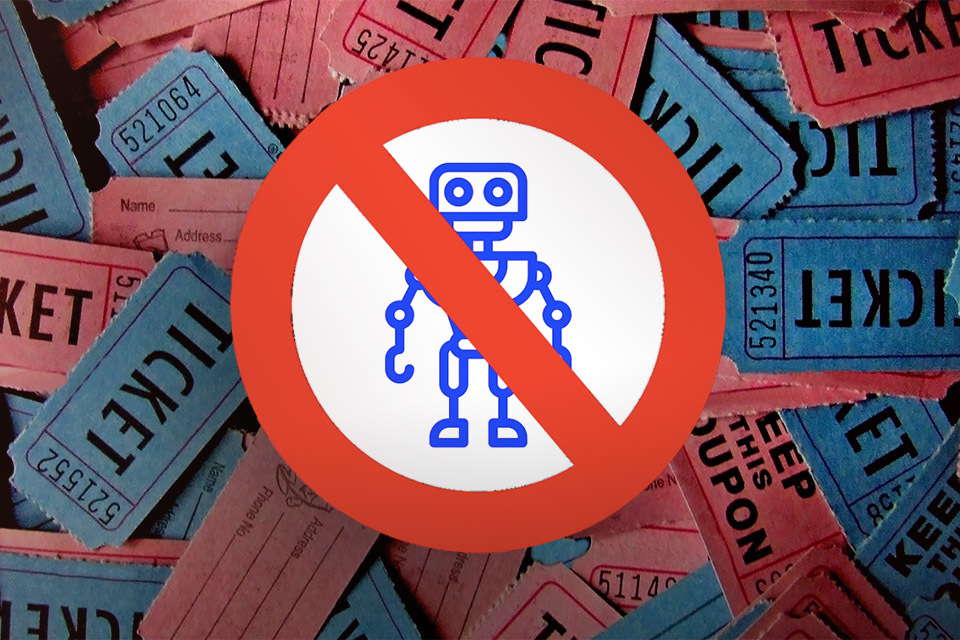Understanding Ticket Buying Bots on Ticketmaster: Types and How They Work

Types of Ticket Buying Bots on Ticketmaster: How They Work and What They Do
Ticket-buying bots are a persistent issue for platforms like Ticketmaster, where high-demand events often sell out in minutes. These automated tools, used by scalpers, secure tickets in bulk, leaving real customers with little opportunity to buy at face value. As bots evolve, developers continue to find ways to bypass security measures like CAPTCHA, waiting rooms, and PVA (Phone Verified Accounts). In this article, we explore the types of bots, how they work, and how they overcome security systems.
What Are Ticket Buying Bots?
Ticket-buying bots are software tools that automatically purchase tickets from platforms like Ticketmaster. They operate much faster than humans and can bypass security measures such as CAPTCHA and PVA systems. Scalpers use these bots to buy tickets for high-demand events in bulk, which they later resell at inflated prices. Despite Ticketmaster’s efforts to combat bots, they remain a significant problem.
Types of Ticket Buying Bots on Ticketmaster
1. Basic Ticket Bots
Basic bots are the simplest form of ticket-buying automation. They quickly fill out forms and complete checkouts at a speed no human could match.
How They Work:
- Form Autofill: Basic bots automatically fill in ticketing forms with pre-saved details like payment information and shipping addresses, speeding up the process.
- Speed: These bots are optimized for speed, completing transactions within milliseconds of tickets becoming available.
Beating PVA Systems:
- Multiple Accounts: Bots bypass PVA by using multiple phone numbers, often sourced from services offering disposable or virtual numbers.
- Automation of Verification: Some bots automatically verify phone numbers, eliminating the need for human intervention.
2. Sneaker Bots
Sneaker bots, originally designed for purchasing limited-edition sneakers, are now used for ticket buying. These bots are highly sophisticated and use various techniques to avoid detection.
How They Work:
- Multiple Accounts & Proxies: Sneaker bots manage hundreds or thousands of accounts and use proxy networks to hide their true IP address, making it hard for Ticketmaster to track activity.
- Auto-Fill and Speed: These bots instantly fill out ticket purchase forms, ensuring real-time ticket securing.
Beating PVA Systems:
- Use of Virtual Phone Numbers: These bots often use virtual phone numbers for PVA registration, available in bulk and usable across accounts.
- SMS Verification Automation: Advanced sneaker bots can automatically input SMS verification codes into the system without human help, bypassing PVA.
3. Flash Sale Bots
Flash sale bots are built to monitor ticket sales during limited-time releases. They respond instantly when tickets become available.
How They Work:
- Real-Time Monitoring: These bots continuously check Ticketmaster for new ticket releases and buy tickets immediately once they go live.
- Optimized for Speed: Flash sale bots have minimal latency, processing transactions faster than a human could.
Beating PVA Systems:
- Multiple Accounts and Proxies: Like sneaker bots, flash sale bots use proxies and multiple accounts to increase the chances of securing tickets.
- API Integrations: Some bots use APIs to bypass the Ticketmaster front-end, directly interacting with the ticketing backend to avoid PVA.
4. Proxy Bots
Proxy bots are advanced bots designed to hide their origin and evade detection.
How They Work:
- IP Rotation: Proxy bots rotate through multiple proxy networks, simulating numerous users. This helps avoid detection by using different IP addresses for each transaction.
- Geographical Masking: These bots use proxies from various regions or countries to bypass geo-restrictions or regional ticket limits.
Beating PVA Systems:
- Phone Number Automation: Proxy bots combine proxies with automated phone number generators to create accounts with verified phone numbers, bypassing the need for personal numbers.
- SMS Verification Interception: Some bots intercept SMS verification codes sent by Ticketmaster, allowing them to complete account setup without manual input.
5. CAPTCHA-Solving Bots
Ticketmaster uses CAPTCHA challenges to block bots, but CAPTCHA-solving bots can bypass this defense.
How They Work:
- Automated CAPTCHA Solvers: CAPTCHA-solving bots use machine learning or external services to solve CAPTCHA puzzles instantly, allowing bots to continue purchasing tickets.
- Human-Verified CAPTCHA: Some bots rely on human workers to solve CAPTCHA challenges in real-time for a small fee.
Beating PVA Systems:
- Integration with Virtual Phone Numbers: CAPTCHA-solving bots often integrate with virtual phone number services, allowing them to bypass phone verification requirements.
- Human-Verified Solutions: Some bots combine CAPTCHA-solving with human workers to verify phone numbers during PVA processes.
6. Reserved Seat Bots
Reserved seat bots target specific seating arrangements, such as front-row or VIP seats at concerts and sports events.
How They Work:
- Seat Selection: These bots are programmed to select and purchase premium seats before others can.
- Speed: Reserved seat bots complete transactions far faster than humans, allowing scalpers to secure premium tickets.
Beating PVA Systems:
- Automation of Registration and Verification: Reserved seat bots use disposable or virtual phone numbers to automate account creation and verification.
- Proxy Networks: They use rotating proxies to bypass regional restrictions or IP bans, avoiding detection by Ticketmaster.
Conclusion
Ticket-buying bots are a serious issue on platforms like Ticketmaster, where scalpers use them to buy tickets in bulk and resell them at inflated prices. Bots range from basic forms that automate checkout to sophisticated systems that use proxies and automated PVA bypassing techniques. Despite ongoing security measures like CAPTCHA and verification systems, bots continue to find ways to overcome these barriers. Understanding how these bots operate and how they beat PVA systems is essential in the ongoing battle against scalping.

